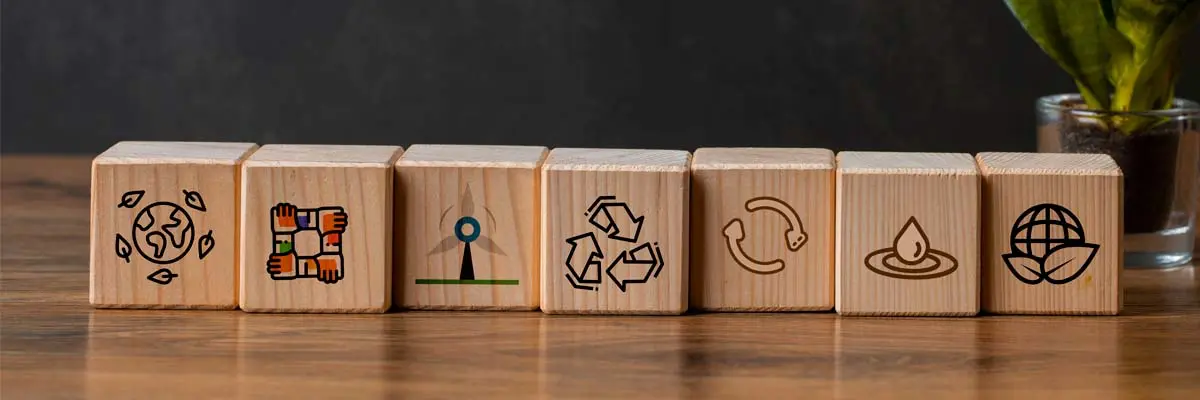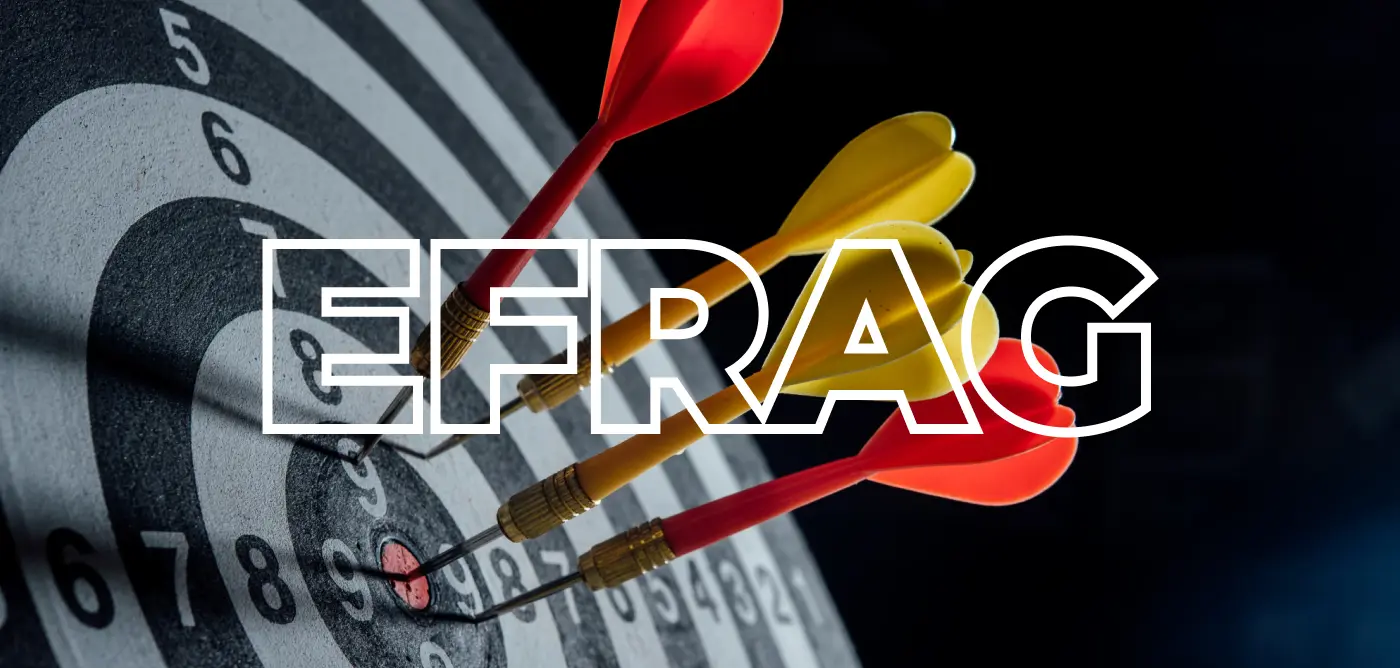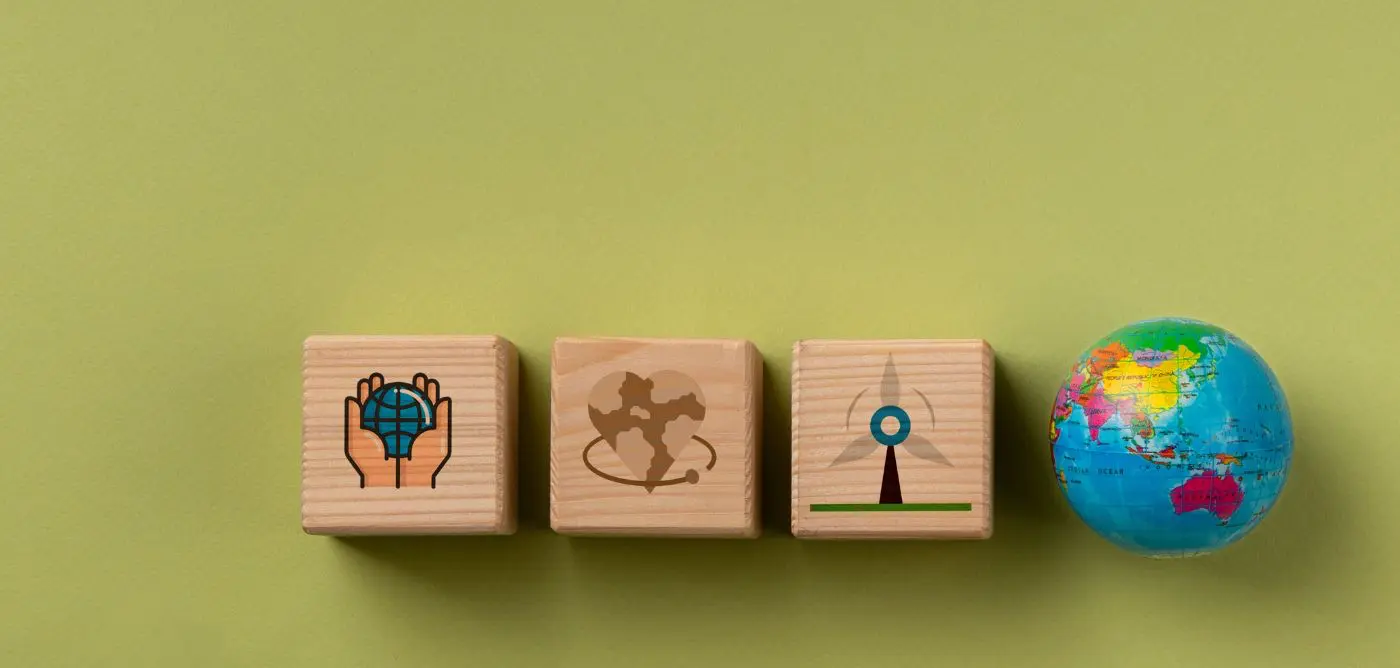
The Sustainable Development Goals (SDGs) are a global initiative adopted by the United Nations to address the world’s major economic, social and environmental challenges. This roadmap for a more sustainable future is made up of 17 goals that aim to eradicate poverty, protect the planet and ensure prosperity for all.
Since their launch in 2015 as part of the 2030 Agenda, the SDGs have marked a turning point in the way governments, businesses and citizens approach sustainability. Their scope is broad, covering key issues such as climate change, gender equality, responsible production and access to basic resources.
The commitment of different sectors to these goals is fundamental to move towards a fairer and more equitable development model. Having the right tools to measure and manage progress on the SDGs enables organisations to integrate sustainability into their strategy in an effective and evidence-based way.
What are the 17 SDGs?
The 17 Sustainable Development Goals (SDGs) are a global plan to address the world’s major social, economic and environmental challenges. Adopted by the UN as part of the 2030 Agenda, these goals cover key areas such as poverty eradication, climate action and gender equality, among others. Their structure is based on three interconnected dimensions: social, economic and environmental. This organisation makes it possible to address global problems in a holistic manner, and to promote a balance between people’s well-being, economic growth and environmental protection.
Social dimension of the SDGs
The social dimension seeks to improve people’s quality of life, promoting access to basic rights, the reduction of inequalities and general well-being. Within this dimension are the following objectives:
- SDG 1: End poverty
- SDG 2: Zero hunger
- SDG 3: Health and well-being
- SDG 4: Quality education
- SDG 5: Gender equality
- SDG 10: Reducing inequalities
- SDG 16: Peace, justice and strong institutions
Economic dimension of the SDGs
Sustainable economic growth is key to ensuring progress without compromising the planet’s resources. This dimension focuses on fostering decent jobs, innovation and access to resilient infrastructure. The economy-related goals include:
- SDG 7: Affordable and clean energy
- SDG 8: Decent work and economic growth
- SDG 9: Industry, innovation and infrastructure
- SDG 11: Sustainable cities and communities
- SDG 12: Responsible Consumption and Production

Environmental dimension of the SDGs
The environmental dimension focuses on the protection of ecosystems, the responsible use of natural resources and the fight against climate change. The objectives linked to this area are:
- SDG 6: Clean water and sanitation
- SDG 13: Climate action
- SDG 14: Underwater Life
- SDG 15: Life of terrestrial ecosystems
Each of these dimensions is interrelated and requires a holistic approach to achieve sustainable development in all areas.
Importance of the SDGs at the global level
The Sustainable Development Goals are a global commitment to build a more equitable and sustainable future. But their implementation is not only the responsibility of governments; it also requires the active participation of the private sector and civil society. These goals help to address the world’s most pressing problems in a coordinated way, seeking a balance between economic development, social well-being and care for the environment.
Impact on governments
Governments play a key role in the implementation of the SDGs, as they are responsible for designing policies that drive their achievement. The integration of these goals into national strategies enables:
- Define legislative frameworks aligned with sustainability principles.
- Establish investment programmes in areas such as education, health and sustainable infrastructure.
- Promote international cooperation to address global issues such as climate change and extreme poverty.
Measuring progress through concrete indicators is essential to assess the performance of policies and to ensure that commitments made are translated into effective action.
Role of the private sector
The business sector has a major influence on the achievement of the SDGs, as its decisions can make a significant contribution to global sustainability. Integrating the SDGs into business strategy makes it possible:
- Adopt responsible business models that balance profitability and sustainability.
- Implement more efficient resource use and waste management practices.
- Develop products and services that respond to the needs of a more sustainable economy.
In addition, companies that align their operations with the SDGs can enhance their reputation, attract responsible investment and strengthen their position in the global marketplace.
Civil society participation
Citizen engagement is key to driving change towards sustainable development. Civil society contributes to the SDGs through:
- The adoption of responsible consumption habits that reduce environmental impact.
- Participation in community initiatives that promote social inclusion and equity.
- Raising awareness and demanding sustainable policies from governments and companies.
Citizen engagement is key to generating collective awareness and fostering concrete actions to achieve the goals set out in the 2030 Agenda.
Challenges in the implementation of the SDGs
Achieving the Sustainable Development Goals requires overcoming a number of implementation challenges. Factors such as financing, availability of resources and measurement of progress are key to ensuring effective and sustained progress. Coordination between the different actors and access to appropriate tools are crucial in this process.
Funding and resources
One of the main challenges for the implementation of the SDGs is to have sufficient funding to carry out the necessary initiatives. Resource mobilisation, both public and private, is essential to develop projects in areas such as education, health and sustainable infrastructure.
Some of the most common obstacles in this area include:
- The lack of investment in key sectors for sustainable development.
- The need to establish innovative financial mechanisms that allow for the efficient channelling of funds.
- The effective management of resources to ensure their correct distribution and use.

Measuring progress
Tracking progress towards the SDGs is essential to know what is working and what is not. Having digital tools to help measure sustainability indicators facilitates access to up-to-date and reliable data, enabling more informed decision-making.
Using sustainability software allows sustainability data to be collected, analysed and reported in a structured way. This, in turn, facilitates reporting and monitoring of targets. These digital solutions help streamline processes, improve transparency and strengthen accountability in organisations working to achieve the SDGs.
Coordination between actors
Effective implementation of the SDGs requires close collaboration between governments, business, non-governmental organisations and society as a whole. Lack of alignment between these actors can slow progress towards the goals and make it difficult to create joint solutions.
To improve coordination, it is essential:
- Establish strategic alliances that favour the exchange of knowledge and resources.
- Define clear roles and responsibilities to avoid duplication and maximise the impact of actions.
- Promote spaces for dialogue that facilitate collective decision-making and the alignment of efforts.
A shared vision and effective cooperation mechanisms allow for more efficient progress towards sustainable development, ensuring that every action contributes to the achievement of global goals.
The 2030 Sustainable Development Goals provide a global framework for companies to contribute to a more sustainable and responsible future. Integrating them into corporate strategy contributes to social and environmental well-being, and also strengthens competitiveness and corporate reputation. Maska provides you with a digital solution that facilitates sustainability management and provides the necessary tools to efficiently collect, analyse and report data. This will allow you to accurately track progress towards the SDGs. We are waiting for you!





